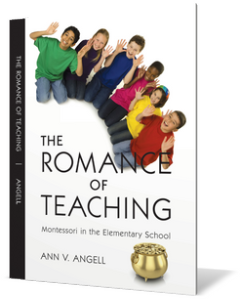Philosophy and politics of education
History for Kids? Yes!
“How will I ever learn history when every day the world keeps making more?” laments Billy in a recent Family Circus cartoon. Two things. First, a wave of sympathy for him because we have all felt that way as we learned history in pieces. Second, it’s great to see a second grader thinking about history. When I worked with student teachers in traditional school settings, they insisted history was not part of the mandated curriculum. Well, maybe it was supposed to be included in the one hour of the week set aside for social studies. … Continue reading
Cosmic Education
The unmistakable buzz of a thousand children’s voices greeted us as we entered New York’s Hayden Planetarium in early June. My traveling companions could’t resist teasing me about taking them on a school field trip, and it’s true I’ve conducted many. Soon, however, they were studying the displays on the first floor until we hurried up the stairs with the crowd for the show in the main projection gallery. We wowed right along with the kids as we watched the simulated “big bang,” the emergence of galaxies, black holes, and dark matter clouding the universe. Afterwards we walked down the… Continue reading
To laugh, or to cry: that is the question.
Reports of 2014 test scores from elementary grades through high school are coming in fast now. Some are truly comical, and others border on tragic.
As reported in the Atlanta Journal-Constitution on June 13th, Georgia’s students’ performance on spring tests showed some improvement in reading, but more than ten percent at every grade level failed math. Twenty percent of fifth graders failed the math test. To put it mildly, this is cause for concern. Here’s the funny part: superintendent John Barge suggests that changing the math standards set ten years ago to the new Common Core… Continue reading
Test Score Reporting Season, 2014
According to the The Dallas Morning News ( June 6, 2012), Texas students still struggle on English tests with just 62% passing English I and 66% passing English II. The gap between white students passing the test and minorities is huge, with black and Hispanic students scoring about 30 percentage points lower. There were better results for passing rates in algebra (81%), biology (91%), and U.S. history (92%). White students’ scores were still higher, but not significantly.
What I find significant in the report is that standards for passing the tests have been lowered for the first three years of… Continue reading
Tired Teachers
I’ve been hanging out with some tired teachers this week, people who have come to the end of another school year, exhausted. They recount high points of the year, especially a last trip or a great theater production that wrapped things up. Teachers remember mostly the good things along with some disappointing outcomes or unresolved issues. Above all, though, they are heaving great sighs of relief that there is now time to rest.
Although we have become accustomed to this year end exhaustion, I would suggest two possible remedies.
First, we can enjoy true rest by slowing… Continue reading
January Report and Looking Down the Second Semester Road
Time Keeper Collects and Analyzes First Semester Data
Teaching with Gatto in mind
First week back and only three days with the students, but I notice my decision-making is different, each utterance and move I make tinged now with Gatto’s thinking. Over the holidays I read his new “Weapons of Mass Instruction,” which pulls together all of his thinking since that fateful designation in 1991 as New York State’s “Teacher of the Year.”
Gatto’s chapter on the “history of education” presents damning evidence that compulsory education is a highly successful arm of a government determined to control its population for capitalist ends, to use schools to “dumb down the population”… Continue reading
